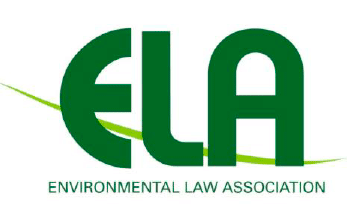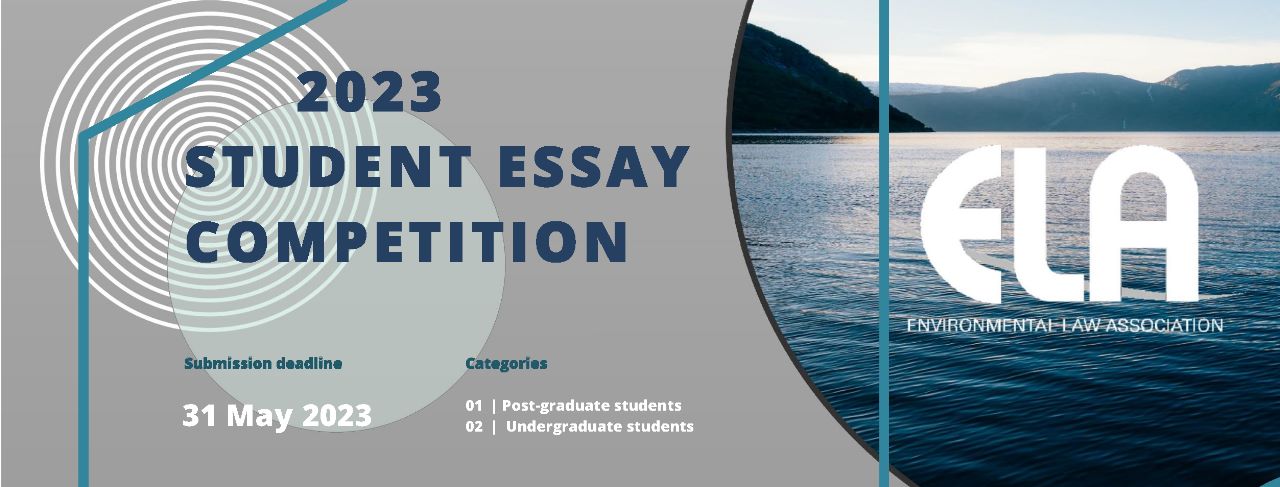Profiling environmental law thought-leaders of the future
We aim to promote the advancement of knowledge and profile new voices in environmental law. To advance these goals, in 2022/2023 we ran our Student Essay Competition. View the competition rules here.
Students enrolled at a South African higher education institution in 2022 (in an undergraduate or postgraduate programme) whose research concerned an environmental law topic could enter the ELA Student Essay Competition. Students submitted essays, including edited versions of their LLM/LLB dissertations. Entries closed on 31 May 2023. The prize winners were announced at our Student Conference on 12 October 2023.
According to Michaela Tafani, a 2019 and 2023 prize winner:
Participating in the ELA’s essay competition is an opportunity for you to hone your research and writing skills. Your essay has the potential to contribute to academic discussions and policy considerations in the realm of environmental law. By participating, you actively contribute to shaping the legal landscape for a more sustainable future for all living things. You will also be able to engage with like-minded individuals, legal professionals, and experts in the field of environmental law. Seize this chance to be a catalyst for positive change.
Several essay submissions were adjudicated by an independent panel of expert judges from academia and practice. We would like to thank all entrants! The essays were interesting and the judges enjoyed reading them. The judges were Patrick Forbes (Director at Garlicke and Bousfield), Prof. Alexander Paterson (University of Cape Town), Dr Tanya Wagenaar (Nelson Mandela University), and Prof. Ademola Jegede (University of Venda). We thank the judges for their time and consideration of the essays.
Michaela Tafani was awarded first prize in the Postgraduate category for her essay, ‘Seismic Surveys and Whales: An Animal Rights Response to Extractivism off the South African Coast’. She won R3000 and will be supported in publishing her essay.

Michaela is an admitted attorney with an interest in environmental and animal law. She is the Programme Lead for Animal Law Reform South Africa’s Corporate Accountability Project, which aims to shed light on the realities of the egg industry of South Africa. During 2019, Michaela was awarded the prize for the ELA Student Essay Competition for her LL.B mini-dissertation titled ‘Towards an Ecocentric Orientation of Laws Regulating Animal Testing for Cosmetic Purposes in South Africa’. Michaela is grateful to accept the award for the 2023 ELA Student Essay Competition for her LL.M mini-dissertation. She dedicates the achievement to Nigel, her Staffordshire Terrier who passed away in 2023. Nigel was there through every sleepless night, providing a shoulder to cry on and a belly to lie on. She would not be anywhere as inspired as she is today without him.
In ‘Seismic Surveys and Whales: An Animal Rights Response to Extractivism off the South African Coast’, Michaela acknowledges that applications by multinational corporations to conduct seismic surveys to extract oil and gas off South Africa’s coastline are becoming more prevalent. She writes that in response, courts have played a crucial role in promoting the narrative that seismic surveys are dangerous and leave devastating effects in their wake. She argues that extractivism, illustrated by seismic surveys, is not only damaging to the environment by contributing to climate change, but that conducting seismic surveys is harmful to marine life, such as the humpback whale. It is established that the detrimental environmental impacts of extracting oil and gas from the ocean represent a climate change mitigation issue which militates against granting permits for seismic surveys to be conducted. A case is made for South Africa to extend rights to non-human animals, including whales, acknowledging their inherent sentience, which could, in turn, act as a deterrent against harmful practices such as seismic surveys. To practically illustrate the significance of these arguments, case law and scientific evidence related to the effect of seismic surveys on whales is relied on to demonstrate how a shifting ethic toward non-human animals and climate change is essential to protecting our planet.
Adelaide Chagopa was awarded runner-up prize in the Postgraduate category for her essay, ‘Minimum Core Obligations: Re-evaluating the realisation of the right to water in South Africa’. She won R1500 and will be supported in publishing her essay.

Adelaide is an aspiring human rights and environmental law lawyer and academic. She is deeply passionate about human rights and the environment, particularly water and sustainability. Adelaide completed her LLB degree in 2016 at Wits University. It was during this time that her interest in environmental law blossomed, so much so, that she went on to read for the LLM in environmental rights at Wits University where her research project focused on water resource management. Her interest in facilitating access to water for all led her to study further and pursue an LLM in Multidisciplinary Human Rights at the University of Pretoria where her dissertation tackled quantifying access to water through minimum core obligations. She is currently an LLD candidate at the University of Pretoria. Through the years Adelaide has been a part of various projects including being a volunteer rapporteur at the COP26 Water Pavilion; tracking the Constitutional Court’s activities and co-authoring reports on that, later published in the SAJHR as well as being a part of the student law journal at the University of Pretoria since 2020. Adelaide hopes that through her work she can be a positive force for change and help pursue a sustainable future where resources are shared and enjoyed equally by all.
Adelaide’s essay, ‘Minimum Core Obligations: Re-evaluating the realisation of the right to water and sanitation in South Africa’, first sets out the framework of minimum core obligations and lays out the context in which the minimum core obligation to the right to water and sanitation is understood in South African jurisprudence by dissecting key case law emanating from the courts. Then the essay proposes minimum core obligations, progressive realisation, and reasonableness as “concepts in concert”. Thereafter, it re-evaluates the substantive content of the right to sufficient water and sanitation in South Africa. This is done by establishing through statistics, the disparities in access to water and sanitation between urban and ‘rural’ provinces as well as inter and intra municipal disparities in access. Lastly, the paper reconstructs the content of the right to sufficient water and sanitation and proposes the minimum content to the right to water and sanitation as: Access to safe, reliable, and affordable water at a volume of 50l/c/d of potable water, at a flow rate of no less than 10 litres per minute and within 200m of the dwelling, where supply shall not be interrupted for longer than 48 consecutive hours; and where the minimum level for peri-urban and rural areas can be no less than 60l/c/d. Minimum access to sanitation is access to a safe, affordable, and reliable improved sanitation facility, at the very least, a VIP or an equivalent technology of sufficient quality and assurance of supply, within the vicinity of a dwelling, and accompanied by appropriate handwashing facilities as well as ongoing appropriate health and hygiene awareness and education for communities.
We wish to congratulate Michaela and Adelaide as well as all the other entrants to our competition for their wonderful environmental law scholarship.
Click here for the competition rules and terms and conditions.


